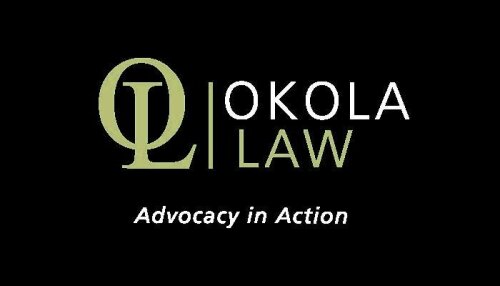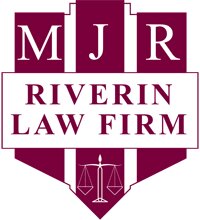Best Employment & Labor Lawyers in Canada
Share your needs with us, get contacted by law firms.
Free. Takes 2 min.
Or refine your search by selecting a city:
List of the best lawyers in Canada
Canada Employment & Labor Legal Articles
Browse our 1 legal article about Employment & Labor in Canada written by expert lawyers.
- Fired Without Warning in Canada: Wrongful Dismissal Guide
- Employment in Canada is regulated by a mix of federal and provincial/territorial laws; only about 6-10% of workers fall under the federal Canada Labour Code, and everyone else is covered by their province or territory's employment standards and human rights laws. Most workers are entitled to minimum standards such as... Read more →
About Employment & Labor Law in Canada
Employment and labor law in Canada encompasses a broad range of legal standards, rights, and obligations that govern the relationships between employers, employees, and unions. These laws are designed to ensure fair treatment, safety, and non-discriminatory practices in workplaces across the country. The legal framework includes both federal and provincial legislations, covering areas such as employment standards, occupational health and safety, labor relations, and human rights in the workplace.
Why You May Need a Lawyer
There are several situations in which individuals or businesses may require legal assistance in matters of employment and labor law. Common scenarios include:
- Disputes over wrongful dismissal or unfair termination.
- Employment contract negotiations and reviews.
- Claims of workplace harassment or discrimination.
- Compliance with occupational health and safety regulations.
- Union-related issues and collective bargaining agreements.
- Disputes over wages, workplace conditions, or benefits.
- Advising on employment standards and workers' rights.
Engaging a lawyer can help ensure your rights are protected and any legal matters are handled professionally and efficiently.
Local Laws Overview
In Canada, employment and labor laws vary between the federal and provincial levels. Some key aspects include:
- Employment Standards: These set minimum standards for various employment conditions, such as minimum wage, hours of work, overtime, and vacation entitlements.
- Human Rights: These laws prohibit discrimination based on race, gender, age, disability, and other protected grounds.
- Occupational Health and Safety: Laws requiring employers to maintain a safe work environment and manage hazards appropriately.
- Labor Relations: Regulations governing the relationships between employers, employees, and unions, including the right to unionize and collectively bargain.
- Employment Equity: Policies ensuring equal employment opportunities for women, minorities, indigenous peoples, and persons with disabilities.
Frequently Asked Questions
What are the minimum employment standards in Canada?
Employment standards in Canada vary by province, but generally include regulations on minimum wage, hours of work, overtime, rest periods, and vacation leave.
Is workplace discrimination illegal in Canada?
Yes, discrimination in the workplace is prohibited under Canadian human rights laws, which protect individuals from discrimination based on several grounds including race, gender, and age.
Can I be fired without cause in Canada?
Employers can terminate an employee without cause - referred to as "without cause dismissal" - but they must provide adequate notice or pay in lieu, according to employment standards legislation and the individual's employment contract.
How can an employee address workplace harassment?
Employees experiencing workplace harassment can file a complaint with their human resources department, seek legal advice, or contact relevant governmental bodies such as a human rights commission.
What rights do employees have regarding unionization?
Employees have the right to join or form a union and engage in collective bargaining. Employers cannot interfere with these rights or discriminate against employees for union activities.
What should be included in an employment contract?
An employment contract should clearly outline job duties, compensation, benefits, work hours, termination clauses, and any confidentiality or non-compete agreements.
How are disputes over wrongful dismissal resolved?
Disputes can be resolved through negotiation, mediation, arbitration, or litigation. Legal advice is often necessary to navigate these processes effectively.
What is the role of labor boards in Canada?
Labor boards oversee matters related to labor relations, such as certification disputes, unfair labor practices, and collective agreement grievances.
What is the process for filing an employment standards complaint?
Individuals can file a complaint with the appropriate provincial or federal employment standards office. The process usually involves providing detailed information about the alleged violation.
Are employees entitled to unemployment insurance in Canada?
Employment Insurance (EI) benefits are available to individuals who have lost their job through no fault of their own, provided they meet eligibility requirements such as insurable hours worked.
Additional Resources
Here are some resources that can assist with employment and labor issues in Canada:
- Canadian Labour Congress
- Employment and Social Development Canada
- Provincial and Territorial Employment Standards Offices
- Canadian Human Rights Commission
- Local legal aid organizations or clinics
Next Steps
If you require legal assistance in employment and labor matters, consider the following steps:
- Identify the specific issue you need help with and gather relevant documents.
- Research potential lawyers or legal firms specializing in employment and labor law.
- Contact a lawyer to discuss your case and inquire about consultation options.
- Prepare questions and a summary of your issue for the initial meeting.
- Consider the costs and potential outcomes before deciding on further action.
Having professional legal advice can help you protect your rights and navigate complex legal challenges effectively.
Lawzana helps you find the best lawyers and law firms in Canada through a curated and pre-screened list of qualified legal professionals. Our platform offers rankings and detailed profiles of attorneys and law firms, allowing you to compare based on practice areas, including Employment & Labor, experience, and client feedback.
Each profile includes a description of the firm's areas of practice, client reviews, team members and partners, year of establishment, spoken languages, office locations, contact information, social media presence, and any published articles or resources. Most firms on our platform speak English and are experienced in both local and international legal matters.
Get a quote from top-rated law firms in Canada — quickly, securely, and without unnecessary hassle.
Disclaimer:
The information provided on this page is for general informational purposes only and does not constitute legal advice. While we strive to ensure the accuracy and relevance of the content, legal information may change over time, and interpretations of the law can vary. You should always consult with a qualified legal professional for advice specific to your situation.
We disclaim all liability for actions taken or not taken based on the content of this page. If you believe any information is incorrect or outdated, please contact us, and we will review and update it where appropriate.
Browse employment & labor law firms by service in Canada
Canada Attorneys in related practice areas.
Browse employment & labor law firms by city in Canada
Refine your search by selecting a city.
















